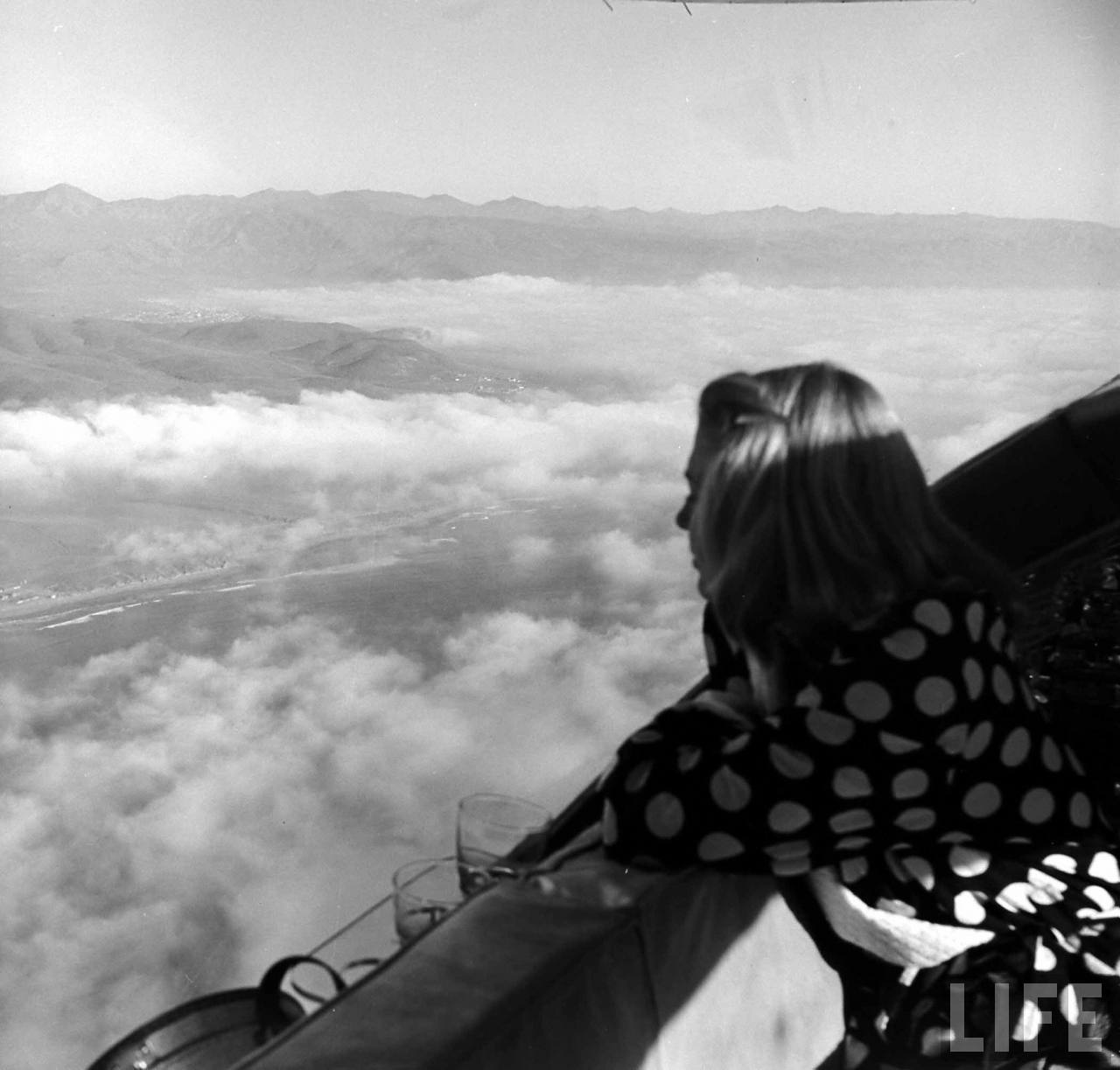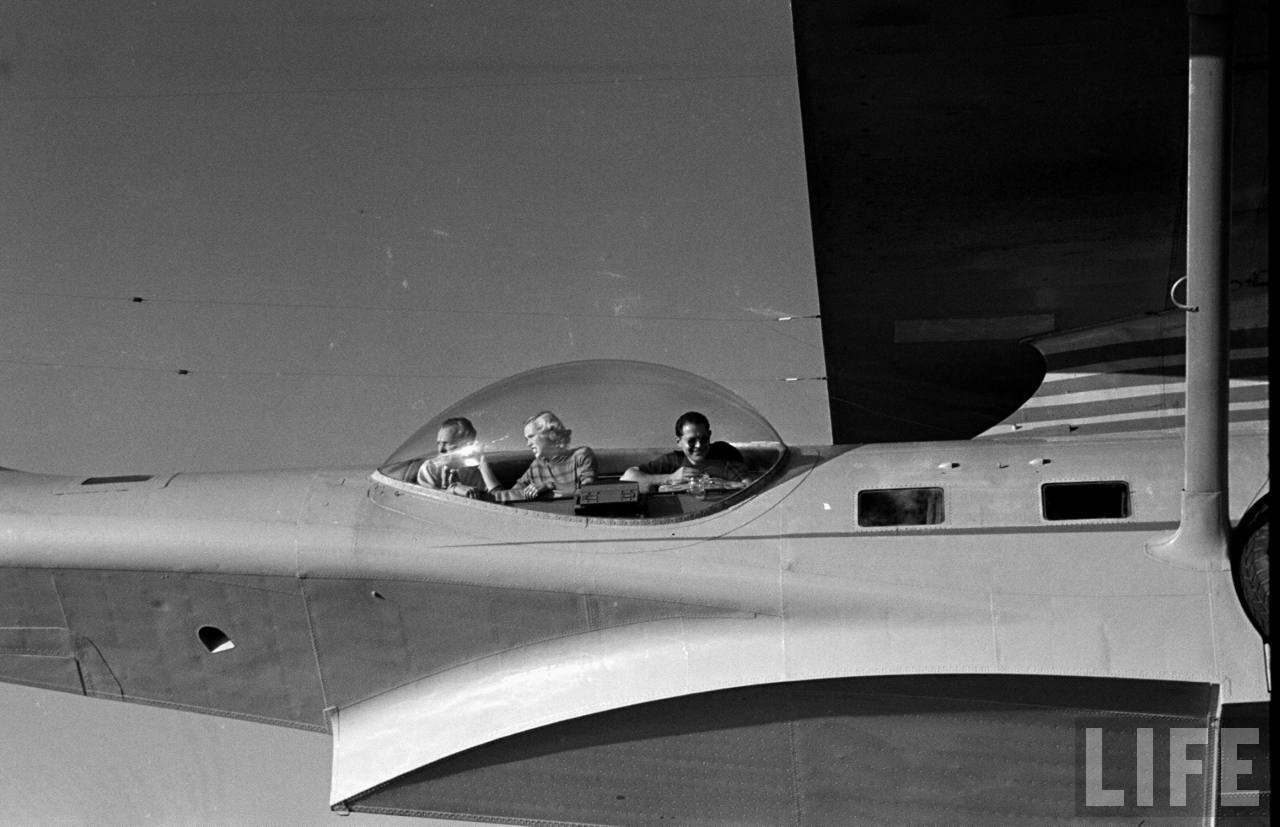The Plane
I like the metaphor of life as a series of flights, and the structure one has built to support one's life as a plane. It could be a complex machine with many switches and buttons and screens and checklists, but an airliner can also carry quite a lot of people. It's the equivalent of a town or a company.
And then there's also one plane that can theoretically fly forever, but I think it's super boring to fly and not very practical. (I'm talking about Solar Impulse.)

Actually, I remember that during my flight training in the gliding club, the time on the ground was often the most enjoyable. In the beginning, flying was new and exciting, but also exhausting and frustrating. And with usually several students on only one instructor and one double-seated training plane, there were rarely many flights for each student and as the flights were usually short we all spent much more time of our days on the ground than in the air.
Still, just relaxing in the grass, away from my hometown, my family, my friends, my worries, my thoughts... was like a foretaste of flying solo a few years later. It was just a new level of silence and freedom. Nobody judging me from the back seat or telling me what to do. Just freedom.. to have fun, to fuck up, to stay up as long as I want (usually). That's when I really started enjoying, playing, and learning.
My father used to tell me that life is like a flight with a glider: you use every opportunity to gain altitude, and in the end you just glide off your remaining altitude until you land. His message was of course: try to increase your altitude while it's easy, because later in life, when the sun is gone, you'll just be gliding.
In reality, glider pilots operate a bit differently. They try to use the altitude band with the best lift. Once they get closer to the top of a thermal where it gets weaker, they go on to the next. If a thermal isn't as strong as the next to be expected within reach, they take the next. To fly as fast as possible, they pick the time of the day where the thermals are strongest, and they don't waste any time.
I was never that competitive, I just tried to stay up as long as I wanted, fly as high as possible, to sometimes get the fun view of being at the tip of an inversion (where suddenly all the dust and clouds are below the horizon, and only clear sky above), or sneak myself above the cloud base to look at them from the side, fly a roll or a looping where nobody saw me (because it's prohibited if you don't have the license to do so), or try to fly with birds. To me it was always more about the experience than the distance or the speed.
The experience of flying varies with the style of flying, but also with the plane.
In a fighter jet, speed is what makes the experience so thrilling. But you don't want to join the military, and neither do I.
The next closest thing that I could imagine using to experience speed would be a Lancair. As a boy I dreamed about the Lancair IV, with a turbine engine driven propeller, a pressurized cabin... and then I met a guy who had one, and it was standing right in the workshop where I started my internship two years ago. But as it's quite expensive to use and to maintain and quite stressful and demanding to fly, he decided to sell it. And I never flew with it. And it's ok.
We could have a simple single-engine plane with two seats, a fixed-pitch propeller, still fairly simple maintenance, and a door that can be opened during flight, so we can enjoy a breeze of air. With such a plane, altitude is of no concern as long as our engine is running.
Or we could have modern single-seated gliders, which don't have the complexity of an engine but can still fly hundreds of kilometres when the conditions are right. Most of them need help to get into the air though.
Or we could have simple hang-gliders made from only a few aluminium tubes, a few metres of steel wire and a few square metres of nylon fabric. It doesn't carry the complexity and weight of instruments, a cockpit or a landing gear – you simply use your senses as your instruments and your feet as your landing gear, and with this simplicity it offers you one of the most direct and exciting flying experiences possible.
Or you could have a paraglider made from only nylon fabric and nylon wires. You can carry it up a mountain in a backpack and then fly from the mountain. It doesn't even take a lot of training to fly, but it's sensitive to turbulence.
You could also have any of these with an electric propulsion, which limits the endurance and range compared to a combustion engine propulsion, but on the positive side cuts the emissions and makes it a lot more silent and simple.
And, I forgot to mention that you could have all of these also virtually, even controlled by yourself. My own first flying experiences (where I had control) were in simulators, both with radio controlled models (literally with the radio connected to the computer) and with real planes (with a joystick), and I can say that I thoroughly enjoyed both.
In the future I'd like to have a great fixed wing or hybrid drone, but a foldable quadcopter with a nice video camera might also do for now.
And with a small, palm-sized quadcopter with ducted propellers and a tiny camera (the whole thing weighed just about 25 g) and some affordable video goggles I already had loads of fun flying around my apartment or university a few years ago. It was even fun to play with the cats in my later collective, allowing them to chase “me” inside the video goggles and controlling the quadcopter. Or to walk through university while flying the quadcopter behind me. A true out-of-body experience.
After all I think the best way of flying to me, no matter if physically or remote-controlled, might still be without propulsion, just surfing on the air, feeling its movement and enjoying how it gives you energy (or fearing how it steals it back), simply enjoying the excitement of playing with it. Everything else is enjoyment of the view, the changed perspective, everything that's happening on the ground.
And last, when flying physically, the sheer experience of being “up there”.
I'd love to share this experience with you, no matter in what form.
One of the best forms I can imagine would be traveling in an electric motor-glider that can be recharged in two summer days through the solar-cells on the wings and that can pack two foldable bicycles. It just doesn't exist yet.
Going back into metaphor mode, I hope you don't have to crash your plane, and if you do, you'll at least survive and meet a little boy, and can then write a book that the world loves (I'm talking about the book The Little Prince by Antoine de Saint-Exupéry which also reminds me of the topic of Africa that I'll address later.)
He also reminds of a story I read that, if I remember correctly, was written by his wife who one day heard and saw him approaching and then crash on the lake in front of the house. From the sound of the impact she knew it was serious. People immediately went to rescue him and brought him home, thinking that he wouldn't survive. She had calmly awaited their arrival and if I remember correctly, saved his life with some really unpleasant procedure.
That's... something I don't really want to experience.
Seriously, don't crash your plane. If you need any help with navigation, reading the weather, making a judgement about going or not going, you can always ask me, and then maybe you don't have to crash.
But if you crash, yes, I will try to find you and rescue you and also help you repair or build a new plane.
However, even without crashes, maintenance and repairs are important, and if you need help with that, no matter what type of plane, I can not only give you a helping hand, I can also find a repair manual for you, tools, spare parts, or a specialist who can help you better than I can. Planes shouldn't crash because of bad maintenance and they rarely do.
And for the rest of possible accident causes within our control (pilot error) there's training, realistic confidence, and good judgement. If in doubt, simply don't fly. (As in sailing where it's said that if you wonder whether you should lower your sail, you should lower it. Better to reduce your surface area and be a bit slower but not capsize. Same goes in flying: Better to have a little less fun or be a little bit slower but don't take uncalculatable risks.)
And, as much as I like the simple ways of flying, I have to acknowledge that airliners have been wildly successful when it comes to transporting people safely, incredibly fast (close to the speed of sound!) and cheaper than anything else. And that's why civil aviation, from some point after the discovery of flight, grew larger and larger compared to general aviation. They maximized safety, convenience and efficiency.
And this is a result of massive collaboration which allowed a massive increase in complexity on both the aircraft level and also the engine level (modern jet engines cost around a third of the whole aircraft, and their evolution is just as impressive as that of airplanes themselves).
Still, I wouldn't like to operate one of these big flying offices or even construct a tiny piece of it while I myself am a small part of a giant corporation.
I prefer working in a team with ten people on a plane that will carry ten people. It's possible to have good relationships with all of them, to have a good overview over the whole design, and to make a valuable contribution.
Taking this again back to metaphor mode, I think this points towards living in a small community of people, supporting each other in their daily lives and sharing what they create to sustain their flights.
And I actually have an example of people who combined both with the Wilson Global Explorer, or L'Avion:
Six people could live on it, but it wasn't fast and versatile enough to actually fly around the world in it, so they disassembled and shipped it around the world while they travelled with regular airliners. A bit of a disappointment, but understandable if you consider the effort that went into building and maintaining a wooden seaplane in saltwater.
It's the same reason why the Catalina Yacht conversion never took off commercially: it was simply way too expensive to buy and maintain for an individual. Only the military can afford such projects it seems.
It's still a very beautiful dream from the past

